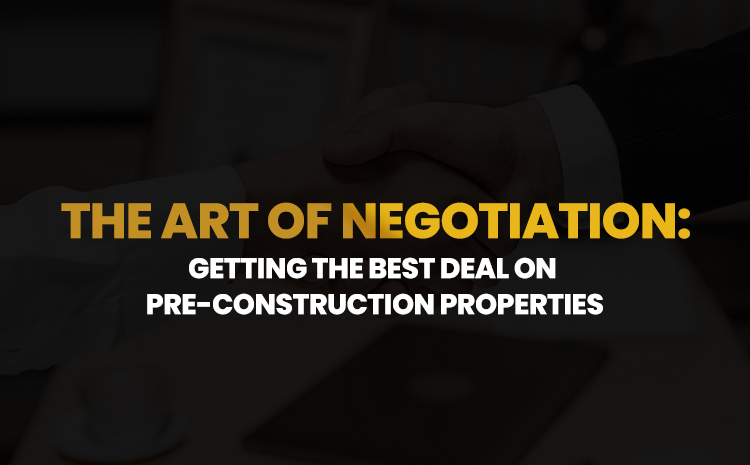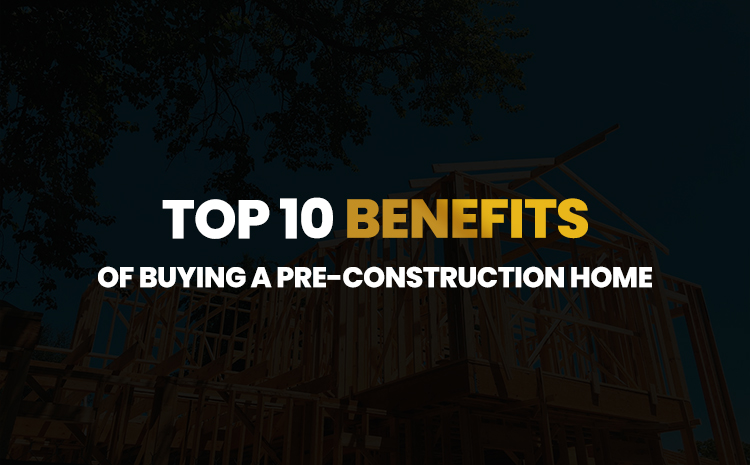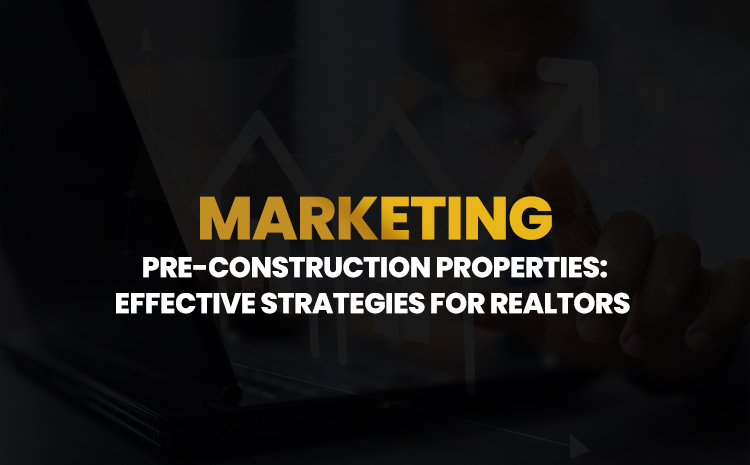Think haggling over a pre-construction condo is like trying to bargain with a brick wall? (If you’re nodding, you’re not alone 🤷).
But what if I told you that with the right moves, you could be playing 4D chess with developers – and winning?
In a world where cement prices are climbing faster than Spider-Man up a skyscraper (over 6% in June 2024, folks!), knowing how to negotiate isn’t just smart – it’s your secret superpower
Whether you want a pre-construction condo or a single-family home, this guide will help you negotiate preconstruction better.
We’ll cover how to understand the builder’s side and use real estate agents to your advantage. You’ll learn strategies to negotiate like a pro and get the pre-construction property you want.
Key Takeaways
- Understand the unique challenges and opportunities of the pre-construction market in Canada.
- Learn how to navigate the builder’s perspective and uncover their negotiation priorities.
- Discover the benefits of working with an experienced real estate agent specializing in pre-construction properties.
- Explore financing options and incentives that can sweeten the deal, such as preferred lender programs and closing cost coverage.
- Negotiate effectively on customizations, upgrades, and construction timelines to ensure your dream home is within reach.
Understanding the Pre-Construction Market
The pre-construction market in Canada has its ups and downs for buyers. Builders might not want to negotiate at first, but there are good reasons to try.
It’s important to understand what both sides want to make a deal work for everyone.
Why Negotiate on Pre-Construction Properties?
Real Estate Agents are key in negotiating pre-construction deals. They make sure prices are fair by looking at market trends and standing up for their clients2.
They help with assignment sales too, where buyers get properties before they’re finished, by making sure deals are clear and getting good terms2.
With resale purchases, Agents help buyers get into a home fast and negotiate better prices, figuring out the property’s value and handling legal stuff2.
The Builder’s Perspective
Canada spent $20.6 billion on building in February 2023.3 Canada has a long history of using prefabricated buildings.
Now, market and social changes are pushing for more industrial and prefabricated buildings. Knowing what builders spend and what they care about can help you negotiate better.
Real Estate Agents use their negotiation skills and market knowledge to get the best deals for clients in pre-construction, assignment, and resale sales2.
“The pre-construction market offers unique opportunities, but it’s essential to understand the motivations and perspectives of both buyers and builders to negotiate effectively.”
Researching and Preparing for Negotiations
Doing your homework is key to winning in pre-construction negotiations4.
Know the local real estate market, what similar homes sell for, and the builder’s history4. This info lets you know what’s fair and keeps you from getting taken for a ride4.
It’s vital to grasp the market’s current state5.
Look at supply and demand, prices, and how the economy might affect talks5. A team with a lawyer and a financial advisor can guide you through the legal and money parts of the deal5.
Knowing what you want from the negotiations helps you make smart choices and see if you’re getting a good deal5. Being a good listener and clear speaker is key in these tricky talks4. Reviewing what happened after the negotiation can teach you how to do better next time5.
Researching well, understanding the builder’s side, and planning your approach can lead to a great deal on your future home4. Putting in the work upfront means you’ll make smart choices and feel confident in the pre-construction market4.
Here are our key items you need to be good with with their respective degree of importance:
| Negotiation Preparation Checklist | Importance |
|---|---|
| Comprehensive market research | High |
| Understanding the builder’s perspective | Critical |
| Establishing clear negotiation objectives | Significant |
| Developing effective communication skills | Essential |
| Assembling a skilled negotiation team | Crucial |
| Conducting post-negotiation reviews | Valuable |
Working with a Real Estate Agent
Working with an experienced real estate agent for pre-construction properties can greatly improve your negotiation skills.
(A good place to ask – are you looking for a realtor to help you negotiate with your builder for a better deal? Or if you are a realtor who needs mentorship/guidance to help with your next pre-con deal? We are a quick call or message away: Get in touch).
These agents know the builder’s processes well and can handle the complex parts of pre-construction deals. Choosing a pre-construction real estate agent with a good track record is key for a successful deal.
Benefits of Having an Experienced Agent
Agents who specialize in pre-construction properties often have access to 10-20% more listings6.
Studies show buyers with agents get homes 5-10% cheaper than those going it alone6. About 80% of buyers found agents helped with the complex legal and contract parts of buying a home6.
Agents skilled in pre-construction homes can cut the buying time by at least 30%6. Working with an experienced agent can reduce the chance of unexpected problems by 25-35%6.
Choosing the Right Agent
When working with a real estate agent for pre-construction, pick one with a strong pre-construction background. About 89% of buyers use an agent to help them buy a home7.
Agents give buyers access to about 12% more exclusive listings and pre-construction opportunities7. They can also speed up the buying process by up to 30%7. Agents successfully negotiate pre-construction deals about 84% of the time, showing their value in getting good terms for buyers7.
They handle up to 80% of the paperwork, reducing stress for buyers7. Plus, 72% of buyers keep working with their agents after the sale, showing the importance of ongoing support7.
When choosing a pre-construction real estate agent, look for their expertise in pre-construction deals.
Good agents offer insights on pricing, incentives, and the future value of properties8. They can help get better deals, like lower prices during the Broker VIP round, and access to more units8. But make sure the agent puts your interests first, as some might focus more on making money than understanding the project’s details8.
“Working with an experienced pre-construction real estate agent can make all the difference in securing the best possible deal and ensuring a smooth purchasing process.”
By working with a skilled and reliable pre-construction real estate agent, you can confidently navigate the pre-construction market. This maximizes your chances and minimizes risks678.
Negotiating in Pre Construction
When you’re looking at pre-construction properties, negotiating is different from buying a resale home.
Builders usually have set prices and designs, but you can still try to get a better deal. Effective communication, flexibility, and a collaborative approach can help you get the best deal. This can be through upgrades, incentives, or other concessions9.
Timing is key in negotiations. Builders might be more open to negotiating at the end of a financial quarter or when they’re not selling as much9.
They might offer upgrades instead of lowering the price. This could be better finishes, landscaping, or high-end appliances9.
Builders might offer financial perks like lower interest rates, reduced closing costs, or points to lower the loan amount.
Getting a comprehensive home warranty in the deal can also protect you from unexpected costs due to construction or appliance problems9.
Working with a skilled real estate agent is key for negotiating on new construction deals. They can speak up for you and make sure your interests are covered9.
It’s also smart to have a lawyer look over the contract to make sure all your agreed-upon terms are written down and to avoid any future disagreements9.
| Negotiation Strategies | Potential Savings |
|---|---|
| Negotiating for a cap on closing costs | 10Hard cap (limits total amount paid even if city fees increase) or soft cap (limits fee increase between signing and closing) |
| Negotiating for upgrades like granite countertops | 10Builders often mark up the prices of upgrades, so negotiating can result in substantial savings |
| Negotiating for premium parking spots | 10Securing a premium parking spot can add convenience and value for the new condo owner |
| Negotiating a flat locked-in rate for condo fees | 10Potential savings from substantial fee increases in the coming years |
Negotiating on pre-construction deals can be complex, but with the right strategies and a good real estate agent, you can get a better deal and protect your interests9.
Understanding the builder’s side, doing your market research, and communicating well can help you find your dream home at a great price9.
Remember, negotiation can also involve extra costs like11adjustments at closing that can add thousands of dollars11, fees for assignment and leasing over $10,000.0011, and Harmonized Sales Tax (HST) around $24,000.0011.
You also need to consider occupancy fees, property taxes, and utilities during the wait period. Reviewing and negotiating these can make your purchase more favorable.
Financing Options and Incentives
When you’re looking to buy a pre-construction property, it’s key to check out your financing options. Builders often have lenders they work with, but you’re not stuck with just those. Looking at loan terms, closing costs, and the lender’s reputation can help you negotiate better12.
Getting incentives like covering closing costs or lower interest rates can save you a lot of money. A good credit score can also get you better loan terms, making your monthly payments lower12. Talking to a real estate lawyer or tax advisor can also help you make the best financing choices12.
Exploring Preferred Lender Options
Builders often have a list of preferred lenders, but don’t limit yourself to them. Looking at other financing options can help you negotiate better12. Make sure to compare what different lenders offer, as interest rates can really vary12.
| Financing Method | Key Considerations |
|---|---|
| Personal Funds | Using personal savings lets buyers avoid debt and interest payments13. |
| Mortgages | It’s important to compare mortgage offers to get good terms and interest rates13. |
| Construction Loans | Construction loans are made for building new homes, with money given out as the project goes along13. |
| Home Equity Loans | Homeowners with a lot of equity might use a home equity loan to fund pre-construction projects13. |
| Pre-construction Financing Programs | Developers might offer special financing with perks like smaller down payments or lower interest rates13. |
By looking at different financing options and negotiating well, you can save a lot and get the pre-construction property you want1213.
Customizing Your Dream Home
Buying a pre-construction property lets you make your dream home your own. You can work with the builder to change the floor plan, pick better finishes, and add important features14. This isn’t usually an option with resale homes, making pre-construction a great choice for those wanting a home that fits their needs.
Negotiating Floor Plans and Upgrades
Timing is crucial when customizing your pre-construction home. Builders are more open to changes early on, before the foundation is set14. Use this chance to talk about the floor plan and get the upgrades you want for your dream home.
Think about what you need, like an open living area, a home office, or a big primary suite. Talk to the builder about these ideas. They might change the layout early on if you ask14. Also, look into different finishes, appliances, and features. Work with the builder to find a package that fits your style and budget.
Using pre-construction homes lets you make a space that shows off your style and meets your needs14. This customization is a big reason why pre-construction is different from buying a resale home. It’s a great option for those who want a home that’s just right for them.
“The ability to customize a pre-construction home is a game-changer for many homebuyers. It allows you to create a living space that perfectly suits your needs and preferences.”
Understanding Builder Costs and Pricing
To negotiate with a builder, knowing their costs and pricing for pre-construction homes is key. This includes the home’s base price, land costs, labor, materials, and various fees and taxes15. This info helps you spot areas to negotiate.
Hidden closing costs for new homes can be about 9-10% and can’t be added to the mortgage15. Builders also charge double the market rate for upgrades15. It’s vital to know the real cost of these extras.
Most developers want 10 to 20% of the home price as a deposit15. The Harmonized Sales Tax (HST) on new homes also affects the price15. Builders can change the property, possibly making it different from what you bought15.
Buying a new construction condo involves two closings: one for occupancy and another for final completion15. The completion date can change, and the builder can delay it several times15. Buyers may face risks if the property’s value drops15.
Knowing these details helps you navigate negotiations better. It’s key to getting a good deal in the complex world of pre-construction pricing.
Timing Your Negotiations
The timing of your pre-construction negotiations is key to success. Builders often aim to meet sales goals, especially at the end of a quarter or year.
Negotiating then might lead to better deals, as builders might offer incentives or discounts to meet their targets10.
Knowing the builder’s sales cycle can help shape your negotiation plan.
(again with knowledge comes negotiation prowess – so arm yourself with the right knowledge!).
Seasonal Strategies for Pre-Construction Negotiations
Some seasons are better for negotiating on pre-construction properties. Spring and summer are busy for real estate, making builders more likely to offer deals to sell quickly10.
On the other hand, fall and winter are slower, and builders might negotiate more to hit their sales goals.
Quarterly Strategies for Pre-Construction Negotiations
Ending a quarter or fiscal year is a good time to negotiate pre-construction deals. Builders have sales goals they aim to meet, and they might offer discounts or incentives to do so10. By timing your negotiations with the builder’s sales cycle in mind, you could get better terms and prices on your purchase.
| Negotiation Timing | Potential Advantages |
|---|---|
| Spring and Summer | Builders may be more inclined to offer concessions to secure sales during the busier real estate market. |
| Fall and Winter | Builders may be more motivated to negotiate to maintain their sales targets during the slower market period. |
| End of Quarter or Fiscal Year | Builders may be more willing to offer discounts or incentives to close deals and meet their sales goals. |
“Timing is everything when it comes to pre-construction negotiations. By understanding the builder’s sales cycle and strategizing your approach, you can gain a competitive edge and secure a more favorable deal.”
Beyond the Price: Additional Negotiation Points
Buying a pre-construction property means more than just talking price. Smart buyers know that things like warranties, closing costs, and timelines matter a lot.
These can change the value and ease of your new home. By talking about these points, you can get a better deal and make moving in smoother.
Warranties, Closing Costs, and Construction Timelines
Don’t just look at the price. Make sure to talk about the builder’s warranty length and coverage. Negotiating pre-construction warranties gives you more peace of mind and shields you from future problems16.
Also, check and talk about the closing costs. Closing costs can quickly add up, making up 2-5% of the purchase price (yikes)17
Work with the builder to reduce these costs or find ways to save more.
Lastly, talk about the construction timeline. Agreeing on realistic construction timelines helps you plan your move and avoid delays17.
By focusing on these points, you can get a pre-construction deal that’s better than just the price. It shows you care about your needs as a buyer.
“Negotiating the fine print can make all the difference in a pre-construction purchase. It’s important to advocate for your needs and not just settle for the standard offering.”
Building Rapport and Relationship Management
Getting along with the builder’s sales rep can help you during pre-construction talks. Talk openly, understand their side, and work together to get a deal that works for both18.
Good negotiation is about four things: talking back and forth, leaders caring for their team, being reliable, and valuing everyone’s input18. Trust grows when both sides act in ways that affect each other.
So, it’s key to build trust and rapport before you start negotiating18.
(CEO & Broker of Record of Hashtag Homes Brokerage Inc – i.e owner of this blog) – says that people usually act like they’re treated. So, being kind and cooperative can make others do the same.
Using rapport in sales helps get more info and sell more by focusing on what people like19.
It’s about knowing how people talk during talks and changing how you talk to make things smoother19. It’s important to know if you’re coming on too strong or too much one way, and adjust19.
Building a good relationship can happen fast if you prepare, or it can take years to be seen as an expert20. People often choose to work with those they know well, showing how important rapport is20. Listening well is key in building relationships and getting deals, and don’t give up if it takes a few tries to get a response20.
Putting in the work to build rapport and manage relationships with builders can lead to better deals on homes before they’re built.
“Effective negotiation relationships are built on four fundamental building blocks: two-way communication, a leader’s strong commitment to the interests of their followers, reliability, and respect for the contributions made by followers to the organization.”18
Conclusion
When you’re looking at pre-construction homes, a smart and informed strategy is crucial for getting a great deal on your dream home21.
Start by doing your homework, understanding what affects prices, and keeping an eye on the market. This way, you can use your bargaining power to get better deals21. Working with a skilled real estate agent can also help a lot, as they offer valuable advice and support during negotiations21.
Getting a good deal in pre-construction means working together with builders to find solutions that benefit both sides22. Building trust, clear communication, and aiming for solutions that help everyone can make the process smoother22.
It’s important to know what you want, be ready to give a little, and use facts to back up your points22.
Starting your pre-construction adventure means being alert, taking the lead, and making your dream home unique23.
So there you have it – your blueprint for negotiating pre-construction properties like a pro.
Remember, in this game, patience isn’t just a virtue – it’s your secret weapon. (And hey, if all else fails, you can always offer to name your firstborn after the developer. Just kidding – please don’t do that 😅)
FAQ
Why should I negotiate on a pre-construction property?
Negotiating on a pre-construction property can get you a great deal. Builders might not seem open to negotiations, but knowing their costs and what they value can help you. This gives you a stronger position in talks.
How can I prepare for effective pre-construction negotiations?
Start by researching the local real estate market, looking at similar sales, and checking the builder’s reputation. This knowledge helps set realistic goals and strengthens your negotiation stance.
What are the benefits of working with a real estate agent specializing in new construction?
Working with a real estate agent who knows the pre-construction market well can be a big help. They have insider info on the builder’s processes and can guide you through the deal’s complexities. Choosing the right agent can improve your negotiation results.
How can I negotiate with the builder on features and upgrades?
Buying a pre-construction property lets you customize your dream home. Talk to the builder about changing the floor plan, upgrading finishes, and adding important features. Builders are more open to changes early on in the building process.
How can I leverage financing options to improve my negotiation position?
Looking into financing options other than the builder’s recommended ones can give you an edge in negotiations. Compare different loans, their terms, costs, and the reputation of the lenders. This can help you get a better deal, including lower interest rates or covered closing costs.
When is the best time to negotiate with a builder?
The timing of your negotiations with a builder is crucial. Builders often have sales targets, especially at the end of a quarter or year. Negotiating then might lead to better deals, as they might offer incentives or discounts to meet their goals.
What other aspects of a pre-construction deal can I negotiate besides the purchase price?
While the price is key, you can also negotiate other parts of a pre-construction deal. This includes the builder’s warranty length and coverage, closing costs, and construction timelines. These points can greatly affect the value and ease of your new home purchase.








